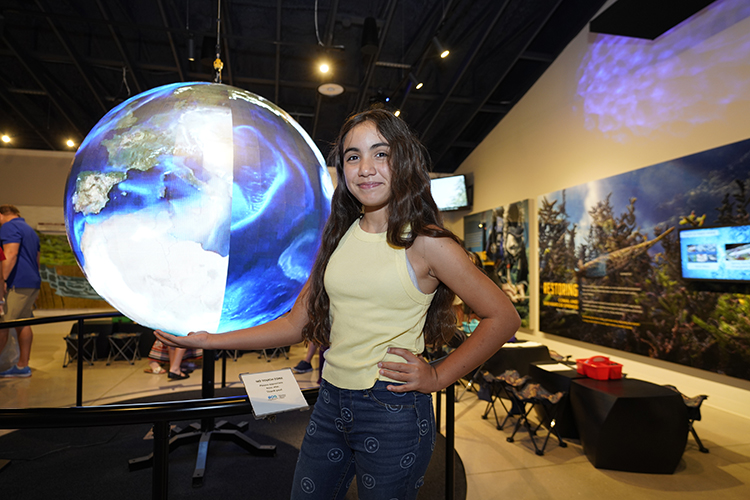Powering Our Future: Energy, Water, and the Edwards Aquifer

This year, Earth Science Week (from October 12 to 18) explores the vital connections between energy resources and the environment with the theme: “Energy Resources for Our Future.” From solar and wind to oil and gas, the way we produce energy impacts the world more than you would think. This includes the water that humans and nature would depend on to thrive.
Energy and water are closely interconnected, and one cannot go without the other. Every time we flip a switch or turn on a faucet, this hidden connection is at work. Producing energy takes water, and lots of it! Power plants need massive amounts of water for cooling towers, oil and gas drilling uses water to mix drilling fluids, and even refining fuel depends on water for cooling and chemical processes. Hydropower? It’s all about water’s force and gravity to turn turbines to create electricity.
But the relationship goes both ways. Treating and delivering clean water requires large amounts of energy. From pumping water out of underground aquifers to filtering, disinfecting, and moving it through miles of pipelines, electricity powers every step. Without energy, water wouldn’t reach your home or business.
That’s where the Edwards Aquifer comes in. This underground system provides drinking water to about 2.5 million people in South Central Texas. The Edwars Aquifer supports farms, ranches, cities, industries, recreation, and the environment. Water keeps our communities and economy thriving. Protecting this resource isn’t just important; it’s essential for a sustainable future.

Illustration on the journey of water in the Edwards Aquifer.
Energy and the Edwards Aquifer
The aquifer works like a natural storage tank. Rain falls on the Contributing Zone, flows into the Recharge Zone, and seeps underground through cracks in the limestone. From there, it’s stored until wells and springs bring it back to the surface. Pumping and moving this water requires electricity, which ties it directly to our energy use. On the flip side, protecting the land above the aquifer helps keep water cleaner and reduces the energy it takes to treat the water for municipal and industrial uses.
At the EAA Education Outreach Center, our exhibit, The Journey of Water, shows this process step by step. Visitors can watch how rainwater travels from the surface into the aquifer and finally bubbles back up through springs and wells. It’s a fun way to see how every drop of water takes a journey and why protecting it matters.

Earth Science Week Resources
Want to celebrate at home or in school? Check out the Earth Science Week Online Toolkit at earthsciweek.org/toolkit/onlinetoolkit. Three great activities that focus on water are:
More Posts

From Lens to Landscape: Tips for Our Rooted in Saving Water Photo Contest
June marks the official start of summer – and one of the most fascinating astronomical events of the year: the summer solstice. This annual milestone happens when Earth’s tilt is at its maximum toward the sun, giving the Northern Hemisphere its longest day and shortest night of the year. This year, the summer solstice arrives on June 20th at 3:50 p.m. CDT.

Behind the scenes at the EOC
Posted on January 23, 2026 by Savannah HeadenWe are so excited to welcome you back to our center as we were busy prepping for this season! As the school year picks up again, so does the behind-the-scenes work of our EAA Education Outreach Center (EAA EOC) staff. Long...

0 Comments